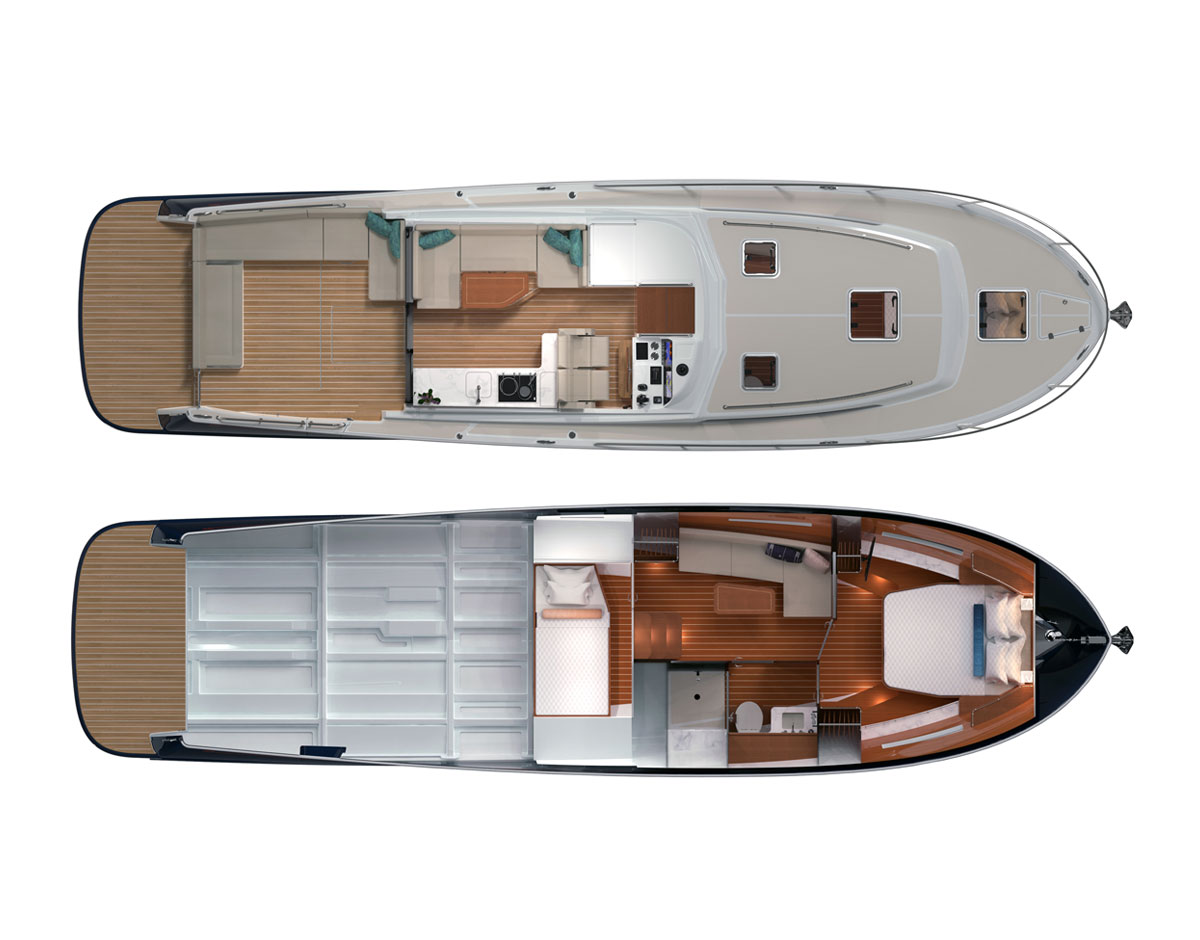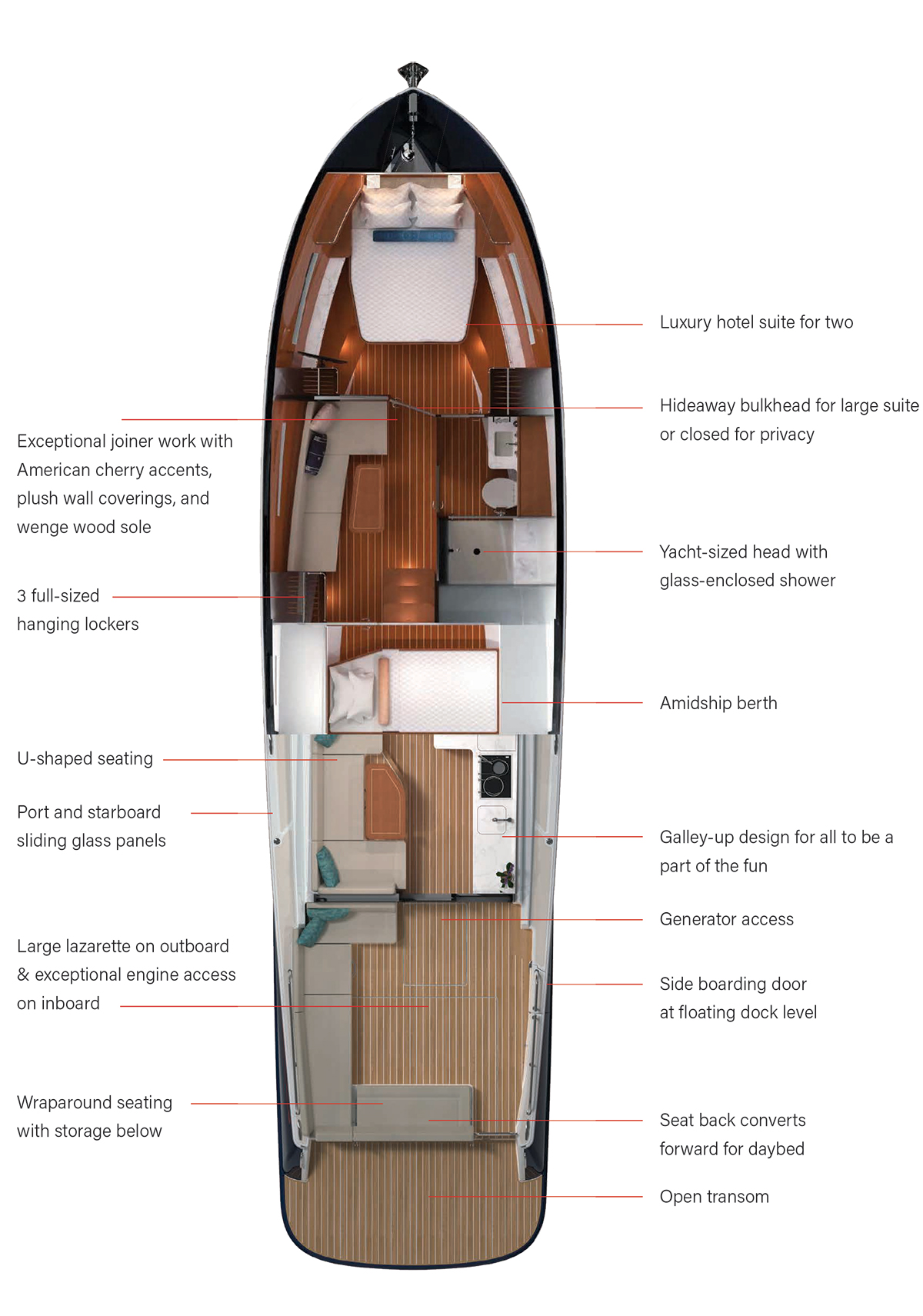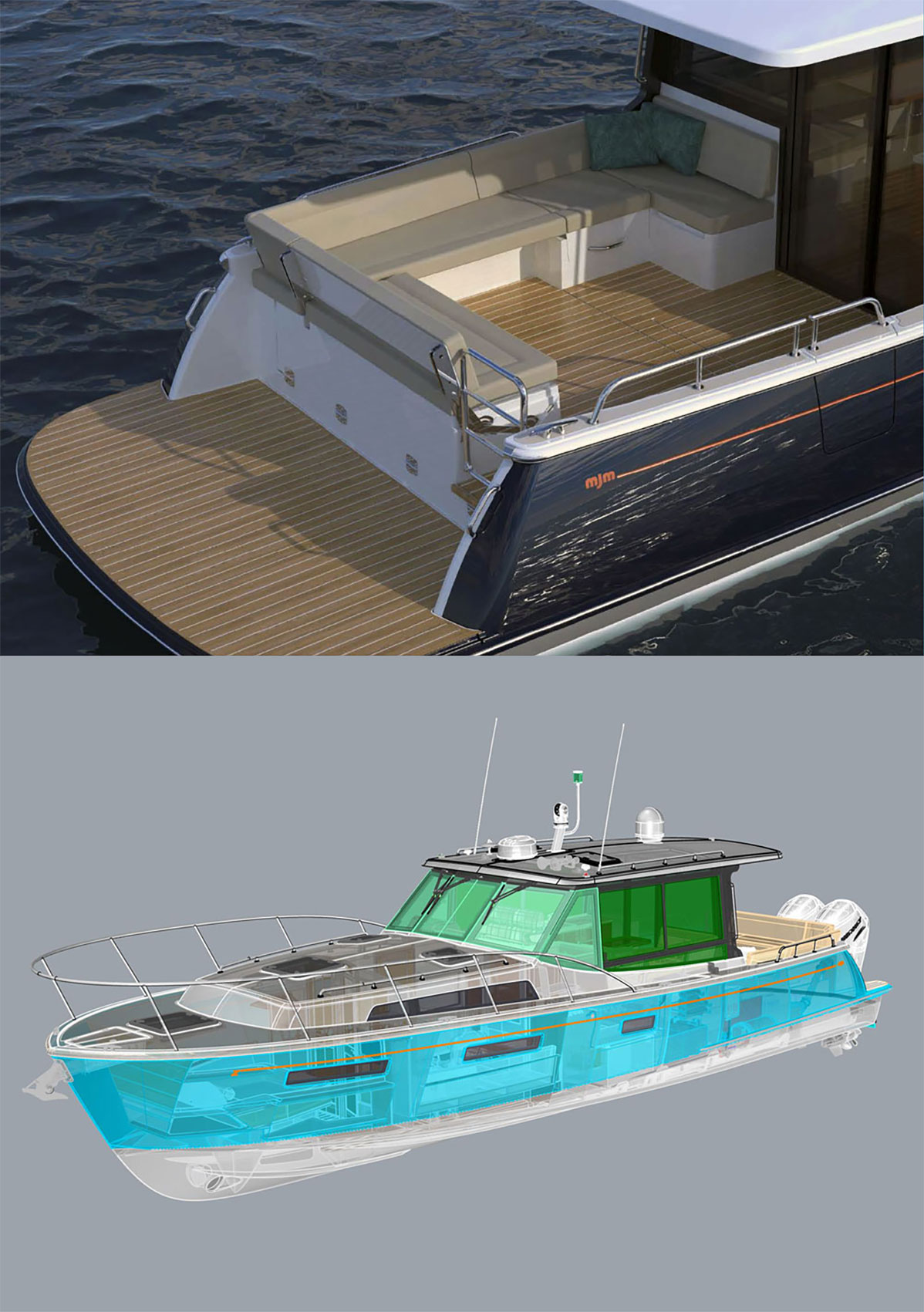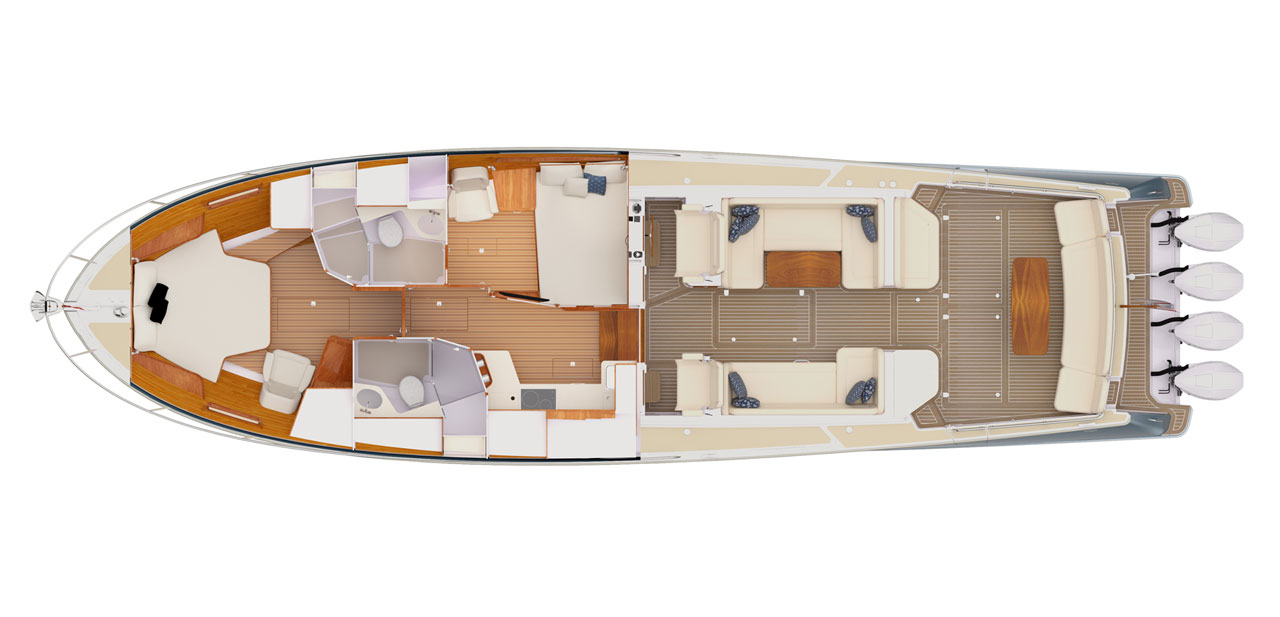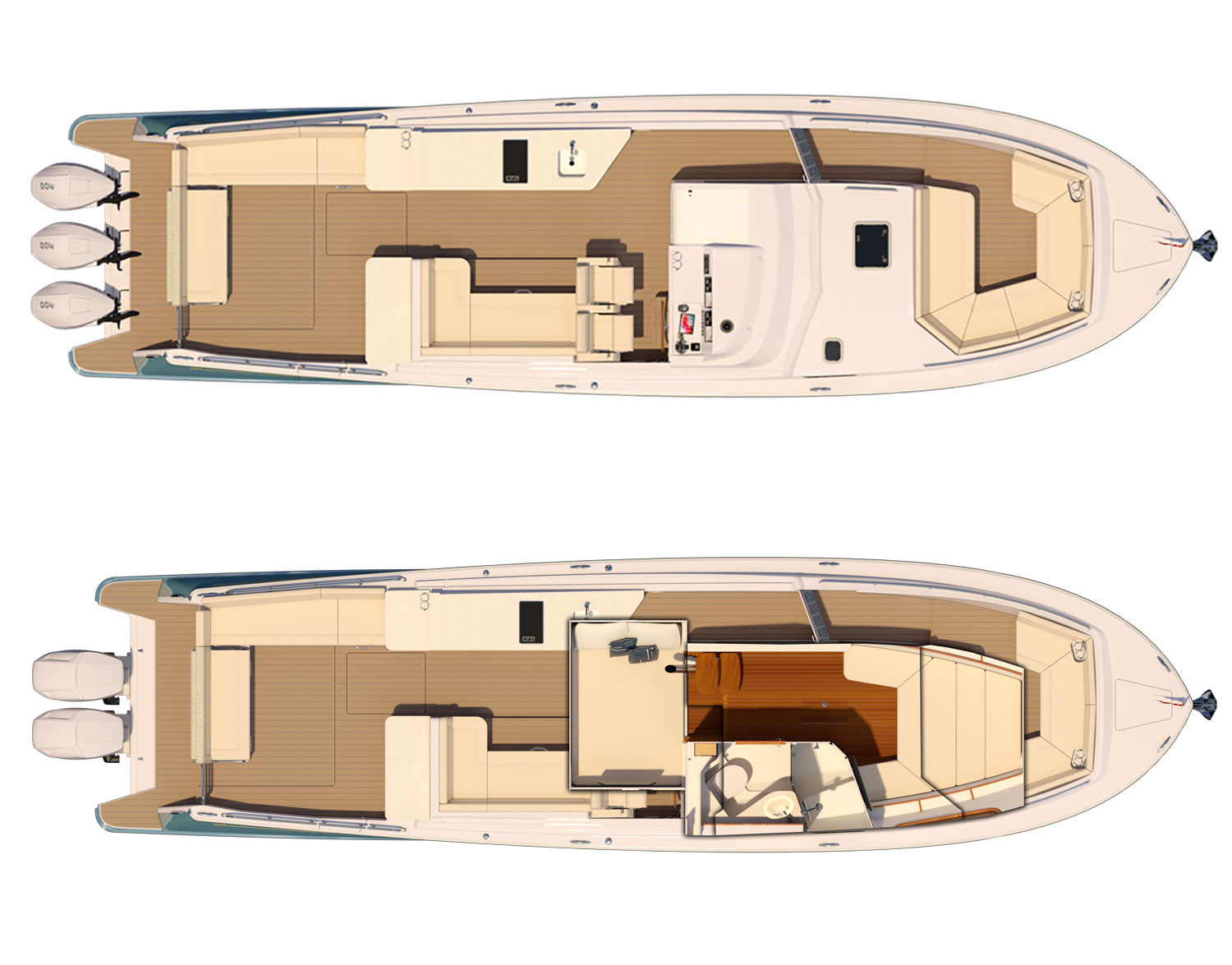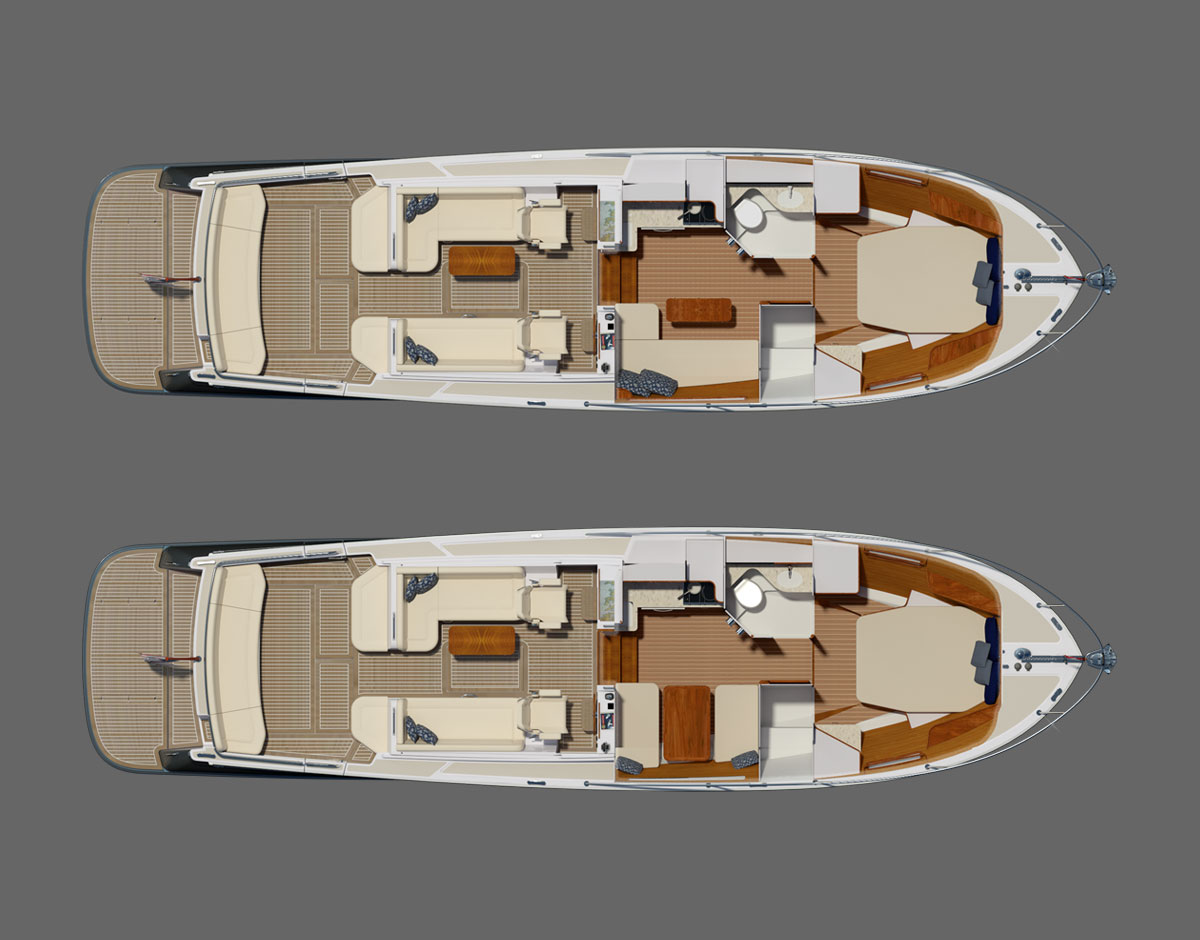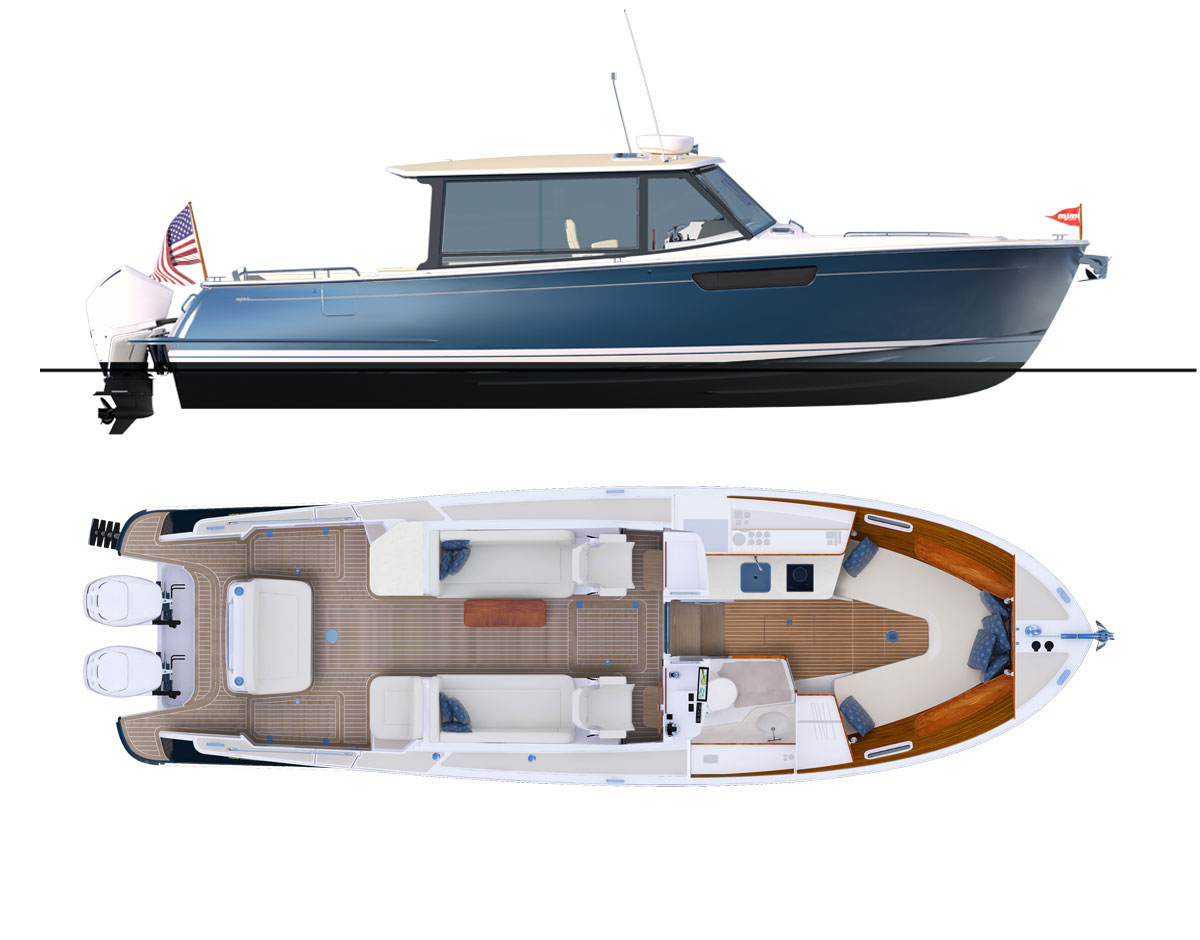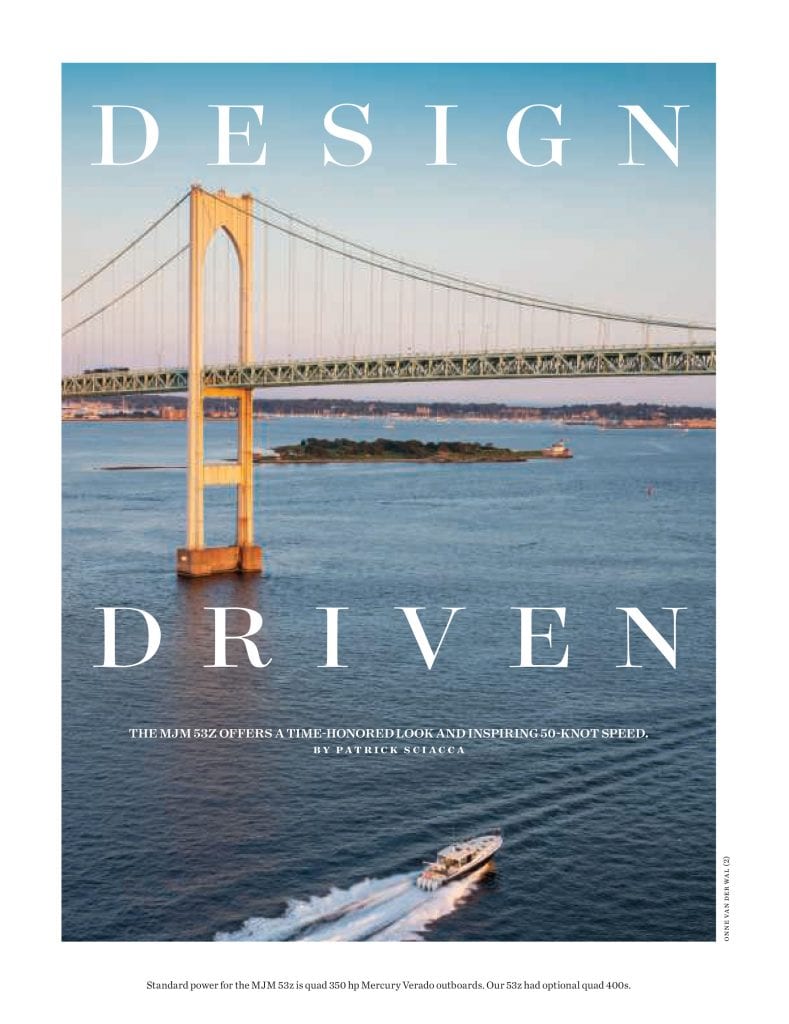
The MJM 53z is a Down East-inspired design, accented by stainless-steel bow rails that average around 30 inches high and mirror the form of the yacht’s fine entry. The rails sweep down the vessel’s razorlike profile and resolve amidships, where a cleverly placed handrail on the hardtop takes over the safety-in-transit department. A trunk cabin adds to the 53z’sagelessaesthetic, and it has function too, increasing headroom below decks.
Her classic look contrasts with the yacht’s modern engine package and high-tech build. Power for the 53z that I got aboard was quad 400 hp Mercury Verados. Quad 350s are standard, but either way, the power setup is a dramatic shift from the builder’s 50z, which has triple 435 hp Volvo Penta IPS600 diesels. The switch to outboards means the 53z needs considerably more fuel capacity: 910 gallons of gasoline compared with 534 gallons of diesel. To balance the 53z with the increased fuel, MJM switched from saddle fuel tanks to a centerline tank. The builder also placed the vessel’s 10-kW Westerbeke genset and standard Seakeeper 9 stabilizeraft to help maintain equilibrium. MJM’s founder, Bob John- stone, says that naval architect Doug Zurn, who pens the MJM line, does a weight study for every build, ensuring that hulls are on an even keel. I didn’t have a level with me, but taking in the yacht dockside in Newport, Rhode Island, she looked arrow-straight and well-proportioned. To that end, the 53z’s length-to-beam ratio is 3.5 to 1. Her length overall is 56 feet, 3 inches. Length on deck is 53 feet even, and her beam is 15 feet on the nose. As for handling, I grew up on a Down East boat, and if we saw 15 to 16 knots, we were flying, so I was curious to see what 1,600 ponies would do for the 53z. Shortly after passing under the Claiborne Pell Newport Bridge, Johnstone put the throttles down.
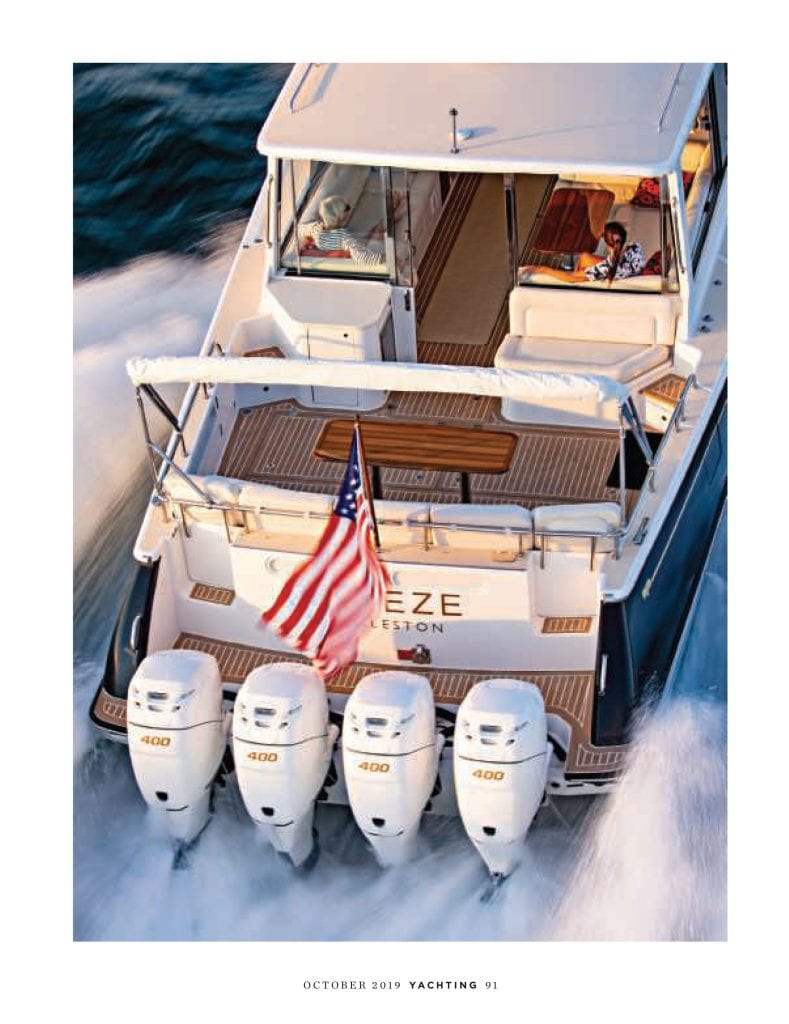
The 53z’s acceleration was impressively smooth in the calm conditions. Bow rise was nearly nonexistent, with the hull helped in part by the yacht’s Humphree Interceptors. They were set on auto and adjusted in real time as the yacht popped out of the hole and onto plane. Sightlines were unobstructed for nearly 360 degrees. Her average top hop was right around 49 knots, but a couple of times, I saw the vessel clip 50 and even 51 knots. The 53z was loaded with about half fuel, 120 gallons of water and four people. This speed is about 10 knots faster than the 50z’s top-end speed. MJM’s initial sea trials saw an average wide-open speed of 48.6 knots. At the 53z’s maxi- mum velocity, her four engines consume about 142.3 gallons per hour, resulting in a range of 272 nautical miles. Dial the speed back to a relatively leisurely 37knots(around5,000rpm) and fuel burn drops to 114 gph, while range pops up to 297nm. Bring the yacht down to 31.6knots (around 4,500 rpm) and fuel burn falls off to 90 gph, while range increases to 320 nm. That’s 0.4 nm per gallon, which is a pretty consistent number for this yacht between 2,500 rpm to 4,500 rpm. At the 53z’s top speed, efficiency drops a hair to 0.3 nmpg. Taking the 24-inch Edson Destroyer wheel, I throttled the 53z up to wide open. Her handling was fairly effortless. She responded instantly to wheel input.
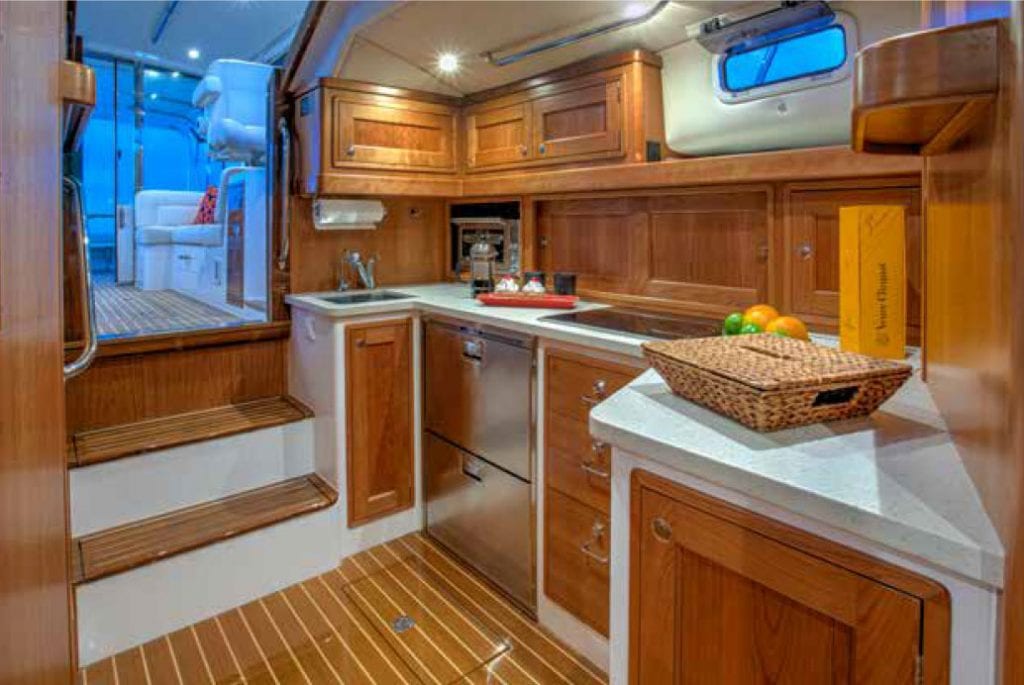
The yacht turned hard over without excessive inboard heel or bleeding off much speed. Although the sea conditions weren’t challenging, they provided insight into the fun side of this high-performing craft. The 53z’s hull felt solid underfoot, thanks in part to her construction. The builder uses wet, prepreg epoxy resin that is post- cured (see: oven baked). Corecell foam in the hull and bulkheads adds rigidity without excessive weight. MJM uses higher-density foam in the hull bottom to better handle the rigors of running in the ocean at speed. For improved abrasion resistance, the builder employs Kevlar in the 53z’s outer skin. This all adds up to the yacht coming in at a fighting weight of about 33,669 pounds at half-load. When you take a lightweight design and add horsepower, you get the performance I saw off the coast of Newport. It’s easy to get lost in the 53z’s zip, but she also has the creature comforts that cruisers want and need. Below decks are two state- rooms. There is a forepeak master with an en suite head and a step-up berth. An easy chair is abaft the berth and to port, if you want to sit back with a book or spend some quality time with the laptop. John- stone suggested that I try out the chair. Admittedly, once I was in it, I didn’t want to leave it. The space is made warm with satin-finish cherrywood, and the average headroom is about 6 feet, 2 inches. Abaft to starboard is a guest stateroom, which can be set up with a double berth or twins. In the double configuration, the berth runs athwartships, and there is an easy chair here too. In the twin-berth setup, the berths run fore to aft, and the chair goes away. A 27-inch LG TV in this stateroom doubles as a computer monitor. There is a second head just forward of the guest stateroom that serves as the day-head.
Between the staterooms and the salon is the galley-down with a Wolf two-burner, ceramic induction cooktop, Breville microwave, 5.5-cubic-foot two-drawer Vitrifrigo fridge, Isotherm freezer and stainless-steel sink. And there is enough stowage for a cruising family to take off for a summer sojourn. If more space is needed, the stowage under the main-deck seating is wide and deep enough to fit my 5-foot-7-inch frame without trying. It’s no simple task to take a yacht that has a stately look and blend that design with the modern-day ingredients of outboard power, as well as with technically intricate construction materials and methods. But MJM has managed to maintain the 53z’s Down East DNA in look and feel while providing a thrill ride of a driving experience and all the comforts of home.

